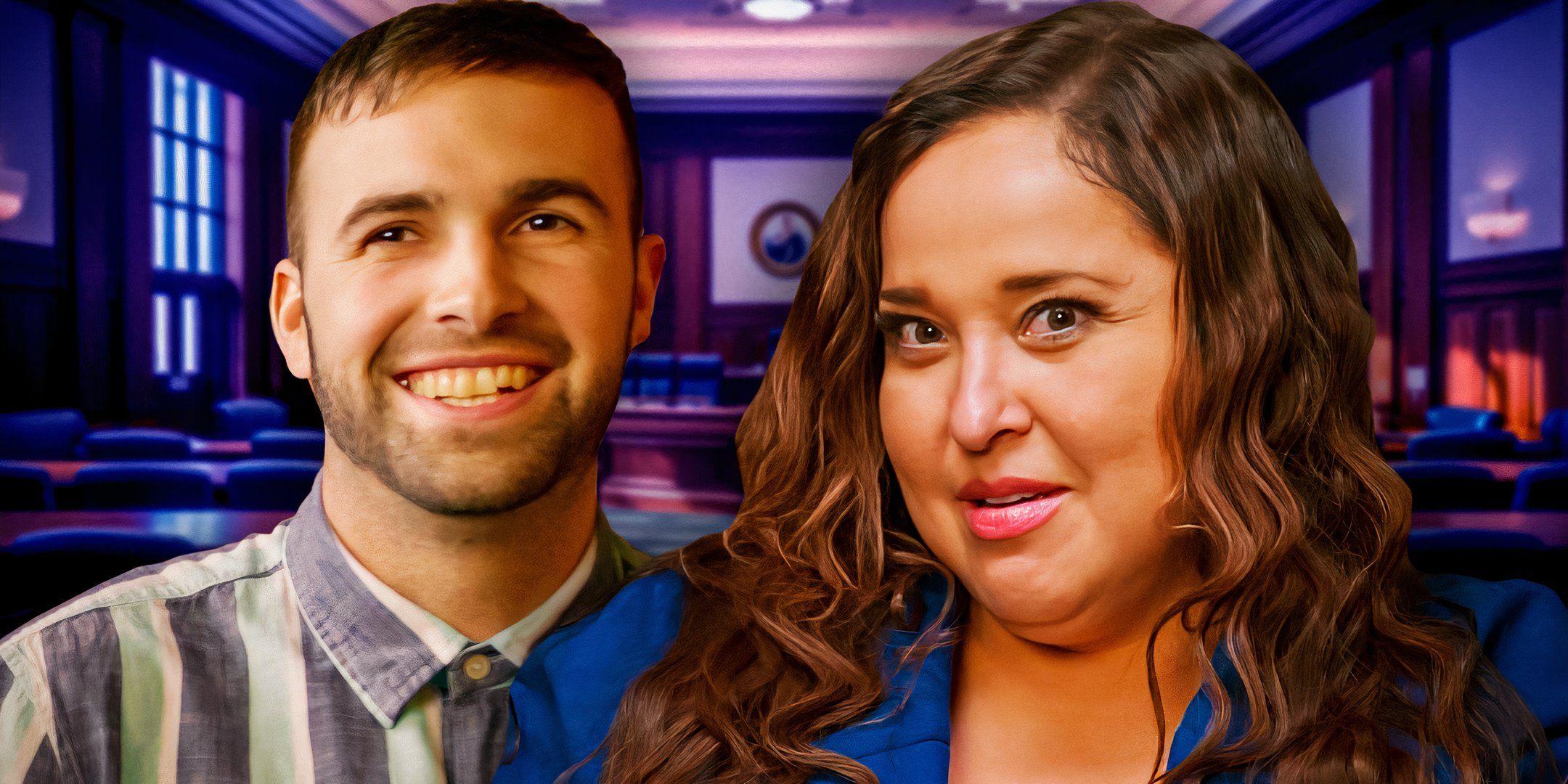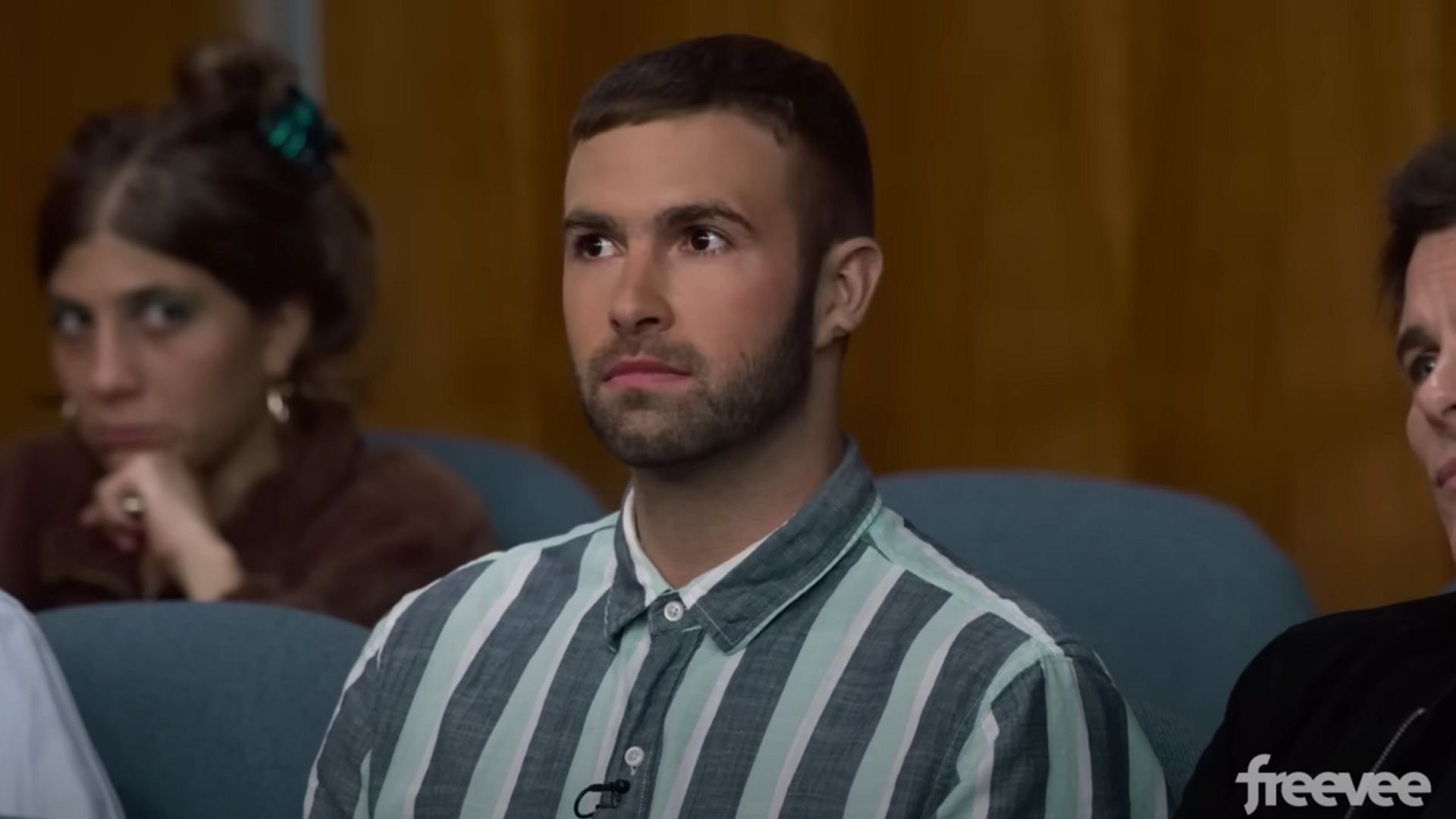The Fascinating World Of The Cast Of Jury: Unveiling The Stars Behind The Verdict
Ever wondered who the real stars are in a courtroom drama? It's not just the lawyers and judges; the cast of jury plays a crucial role in shaping the outcome of every trial. These ordinary citizens are called upon to serve an extraordinary purpose, deciding the fate of individuals on trial. Let's dive into their world and uncover what makes them so important in the legal system.
When you think about a courtroom, your mind might immediately jump to the dramatic scenes you've seen on TV or in movies. But there's more to it than just the lawyers arguing and the judge banging the gavel. The cast of jury is the backbone of the justice system, ensuring fairness and impartiality in every case they deliberate on.
So, buckle up as we take a deep dive into the fascinating world of jury duty, exploring who these people are, what their responsibilities entail, and why their role is so vital in the pursuit of justice. This is not just about serving on a jury; it's about understanding the impact they have on society as a whole.
- Tretro Bowl Unblocked The Ultimate Guide To Retro Gaming Fun
- Cole Sturgis Life Below Zero The Untold Story Of Alaskas Survivalist Legend
What Exactly is the Cast of Jury?
The term "cast of jury" might sound a little dramatic, but it perfectly captures the essence of what juries are all about. In legal terms, a jury is a group of individuals selected from the community to hear evidence and make decisions in court cases. They are the ones who ultimately decide the guilt or innocence of the accused in criminal trials or the liability in civil cases.
Now, here's the kicker: these jurors are everyday people, just like you and me. They come from all walks of life, bringing with them diverse perspectives and experiences that contribute to a fair and balanced decision-making process. It's this diversity that makes the jury system so effective in delivering justice.
But being part of the cast of jury isn't just about showing up and listening to testimony. It requires a commitment to impartiality, a willingness to engage in thoughtful deliberation, and a responsibility to uphold the principles of justice. Let's explore this further in the next section.
- Where Is Diddys Home Unveiling The Secrets Of His Lavish Lifestyle
- Sabrina Carpenter Spouse The Untold Story Of Love Fame And Relationships
Why is the Jury System Important?
Alright, let's get real for a second. The jury system is more than just a formality in the legal process. It's a cornerstone of democracy, ensuring that justice is not solely in the hands of judges or government officials. Instead, it places the power to decide outcomes in the hands of ordinary citizens, making the system more transparent and accountable.
Here's the deal: when a jury is properly selected and instructed, it acts as a safeguard against abuse of power. It ensures that no single authority has the final say in matters of life and liberty. This is especially important in cases where public opinion or political pressures might influence the outcome.
Moreover, the jury system reflects the values and norms of society. It allows for community participation in the administration of justice, fostering trust and confidence in the legal system. Now, let's take a closer look at who exactly makes up this "cast of jury" and what qualifications they need.
Who Makes Up the Cast of Jury?
So, who gets to be part of this illustrious group? Well, it's not as glamorous as it sounds. Jurors are typically selected at random from the voter registration rolls or driver's license records in a given area. This ensures a representative cross-section of the community.
Here's the thing: anyone who is a U.S. citizen, over the age of 18, and a resident of the judicial district can be called for jury duty. However, there are some exceptions. For instance, if you have a physical or mental disability that prevents you from serving, or if you're a full-time student or caregiver, you might be excused.
But don't think you're off the hook just yet. Jury duty is a civic responsibility, and it's taken pretty seriously. If you ignore a summons, you could face fines or even legal consequences. Now, let's break it down further with some bullet points:
- Jurors are selected randomly from voter registration and driver's license records.
- They must be U.S. citizens, over 18, and residents of the judicial district.
- Exceptions are made for those with disabilities, students, or caregivers.
- Jury duty is a mandatory civic responsibility.
The Selection Process: How Jurors are Chosen
Alright, so you've been summoned for jury duty. What happens next? The selection process, also known as voir dire, is where the magic happens. This is where potential jurors are questioned by the judge and attorneys to determine their suitability for a particular case.
During voir dire, attorneys from both sides can challenge potential jurors for cause if they believe the juror might be biased or unable to be impartial. They can also exercise peremptory challenges, which allow them to dismiss a juror without stating a reason, although these are limited in number.
It's a pretty intense process, but it's essential to ensure that the final jury is fair and impartial. Once the jury is selected, they are sworn in and the trial begins. Let's move on to the next section to see what their responsibilities entail.
Responsibilities of the Cast of Jury
So, what exactly does a juror do? Their primary responsibility is to listen to the evidence presented during the trial, follow the judge's instructions on the law, and deliberate with fellow jurors to reach a verdict. But it's not as simple as it sounds.
Jurors must remain impartial throughout the trial, avoiding any outside influences or discussions about the case. They are also prohibited from conducting their own research or investigations. This ensures that their decision is based solely on the evidence presented in court.
Here's a quick rundown of their responsibilities:
- Listen to evidence presented during the trial.
- Follow the judge's instructions on the law.
- Deliberate with fellow jurors to reach a verdict.
- Remain impartial and avoid outside influences.
Challenges Faced by the Cast of Jury
Let's be real for a second. Being a juror is not easy. There are several challenges that jurors face, from balancing their personal lives to dealing with the emotional toll of some cases. It's not just about showing up and listening to testimony; it's about making life-changing decisions based on the evidence presented.
One of the biggest challenges is maintaining impartiality. Jurors are bombarded with information from all sides, and it can be tough to separate fact from fiction. They must also deal with the pressure of making a decision that could have serious consequences for the individuals involved.
Additionally, jurors often face criticism or scrutiny from the public, especially in high-profile cases. This can be stressful and even intimidating for some. But despite these challenges, most jurors rise to the occasion and fulfill their civic duty with integrity and dedication.
Support Systems for Jurors
Now, here's the good news: jurors are not left to fend for themselves. There are support systems in place to help them navigate the challenges of jury duty. Courts often provide resources such as counseling services, financial assistance for lost wages, and accommodations for those with special needs.
Moreover, many jurisdictions have implemented measures to make jury duty more convenient and less burdensome. For example, some allow jurors to serve for shorter terms or provide more flexible scheduling options. These efforts help ensure that jurors can focus on their responsibilities without undue stress or hardship.
The Impact of the Cast of Jury on Justice
Alright, let's talk about the big picture. The cast of jury plays a crucial role in the administration of justice. Their decisions have far-reaching implications, not just for the individuals involved in the case, but for society as a whole. By participating in the jury system, citizens help uphold the principles of fairness, equality, and justice.
Studies have shown that juries are generally effective in reaching fair and impartial verdicts. They bring a diversity of perspectives to the table, which helps counteract any biases or preconceived notions that might exist. This diversity is one of the key strengths of the jury system.
Furthermore, the jury system fosters trust and confidence in the legal system. When people see that their peers are involved in the decision-making process, they are more likely to view the outcomes as legitimate and just. This is especially important in a democratic society where the rule of law is paramount.
Interesting Statistics About the Cast of Jury
Now, let's take a look at some interesting statistics about juries. Did you know that approximately 8 million people are summoned for jury duty each year in the United States? That's a pretty impressive number when you think about it.
Here are some more stats to chew on:
- About 20% of those summoned actually serve on a jury.
- The average length of jury service is around 3-5 days.
- In criminal cases, juries are typically composed of 12 members.
- In civil cases, juries can range from 6 to 12 members.
These numbers highlight the importance of the jury system and the significant role that ordinary citizens play in ensuring justice is served. But what about the future of juries? Let's explore that in the next section.
The Future of the Cast of Jury
As society evolves, so too does the jury system. Advances in technology and changes in societal norms are reshaping how juries are selected and how trials are conducted. For example, some courts are experimenting with virtual jury duty, allowing jurors to participate remotely via video conferencing.
There's also a growing emphasis on improving the diversity of juries to better reflect the communities they serve. Efforts are being made to ensure that people from all backgrounds have an equal opportunity to serve on a jury, which can lead to more equitable outcomes.
But one thing remains constant: the importance of the jury system in upholding justice. As long as we value fairness, equality, and the rule of law, the cast of jury will continue to play a vital role in our legal system.
Final Thoughts and Call to Action
So, there you have it. The cast of jury is not just a group of random individuals; they are the backbone of our justice system. Their role is crucial in ensuring that every trial is fair and impartial, and their decisions have a lasting impact on society.
Now, it's your turn to take action. If you've ever been summoned for jury duty, consider it an opportunity to make a difference. Embrace your civic responsibility and help uphold the principles of justice. And if you're reading this article, why not share it with others? Spread the word about the importance of the jury system and the vital role that jurors play in our society.
Remember, justice is not just about the law; it's about people. And the cast of jury is the ultimate example of how ordinary citizens can come together to do extraordinary things. So, let's keep the jury system alive and thriving for generations to come.
Table of Contents
- What Exactly is the Cast of Jury?
- Why is the Jury System Important?
- Who Makes Up the Cast of Jury?
- The Selection Process: How Jurors are Chosen
- Responsibilities of the Cast of Jury
- Challenges Faced by the Cast of Jury
- Support Systems for Jurors
- The Impact of the Cast of Jury on Justice
- Interesting Statistics About the Cast of Jury
- The Future of the Cast of Jury
- Final Thoughts and Call to Action



Detail Author:
- Name : Leonel Leffler II
- Username : tiara48
- Email : tommie.okuneva@gmail.com
- Birthdate : 1987-05-12
- Address : 118 Ryan Ford Lake Westley, WV 54268
- Phone : 938.849.5367
- Company : Bailey Group
- Job : Mold Maker
- Bio : Cupiditate aperiam nesciunt praesentium ullam rerum facere enim. Optio id impedit commodi distinctio esse exercitationem distinctio quia. Est placeat expedita cum repudiandae voluptas enim.
Socials
twitter:
- url : https://twitter.com/mhackett
- username : mhackett
- bio : Quam expedita consequuntur voluptatem est delectus deserunt. Inventore nihil facere qui deleniti voluptates velit non. Est ut accusamus itaque rerum.
- followers : 5315
- following : 1222
instagram:
- url : https://instagram.com/hackett1989
- username : hackett1989
- bio : Repudiandae odit aut ea atque. Sunt assumenda id autem recusandae sed expedita esse qui.
- followers : 3080
- following : 1806